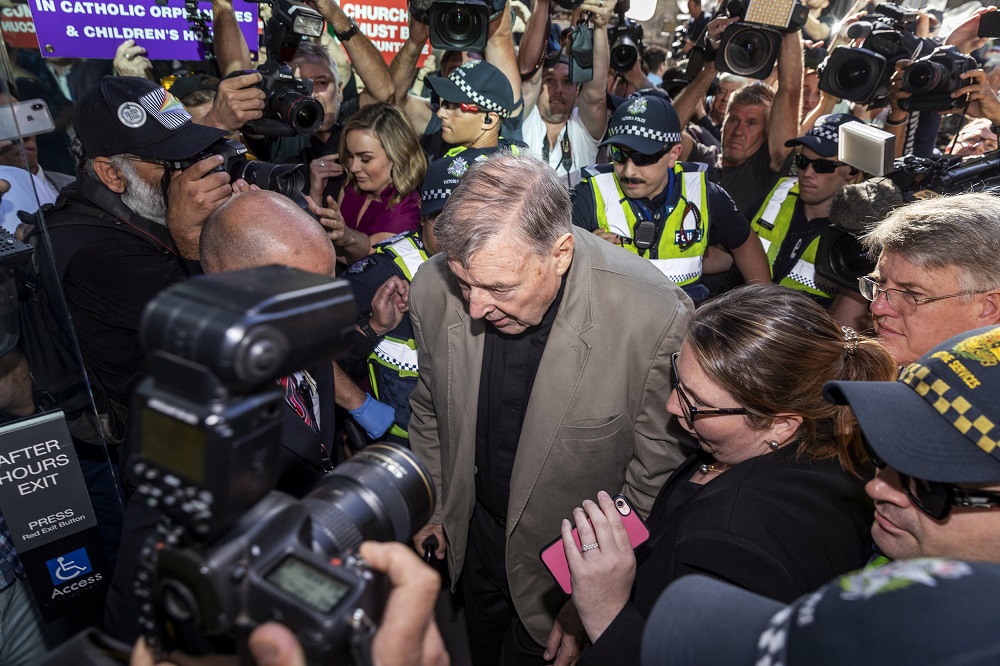
Australian Cardinal George Pell arrives at the County Court in Melbourne Feb. 27, 2019. Pell was jailed after being found guilty of child sexual abuse; the Vatican announced his case would be investigated by the Congregation for the Doctrine of the Faith. (CNS/Daniel Pockett, AAP images via Reuters)
The day Australian Cardinal George Pell was jailed in Melbourne after being found guilty of child sexual abuse, the Vatican announced his case would be investigated by the Congregation for the Doctrine of the Faith.
Advertisement
When a deacon, priest or bishop is accused of abuse, the first phase of the investigation generally is carried out by the diocese where the abuse is alleged to have occurred. For instance, in the case of Theodore McCarrick, the former cardinal dismissed from the clerical state Feb. 16, the initial investigation was carried out by the Archdiocese of New York, and once the allegations were determined to be credible, the case was handed over to the Congregation for the Doctrine of the Faith.
The Vatican statement Feb. 27 did not mention an archdiocesan inquiry, but apparently that is not necessary in cases where there is a criminal court conviction.
According to information posted by the Vatican in conjunction with the summit Feb. 21-24 on abuse, when the doctrinal congregation opens a process, two modes of proceeding are possible: either with a trial or with a shorter administrative process. In both cases, the accused has the right and opportunity to know the evidence against him and to respond.
If found guilty, the penalties can vary depending on the seriousness of the crime and, often, the age of the accused; possible penalties include removal from office, restricted ministry, "a life of prayer and penance" without any public ministry and dismissal from the clerical state.



